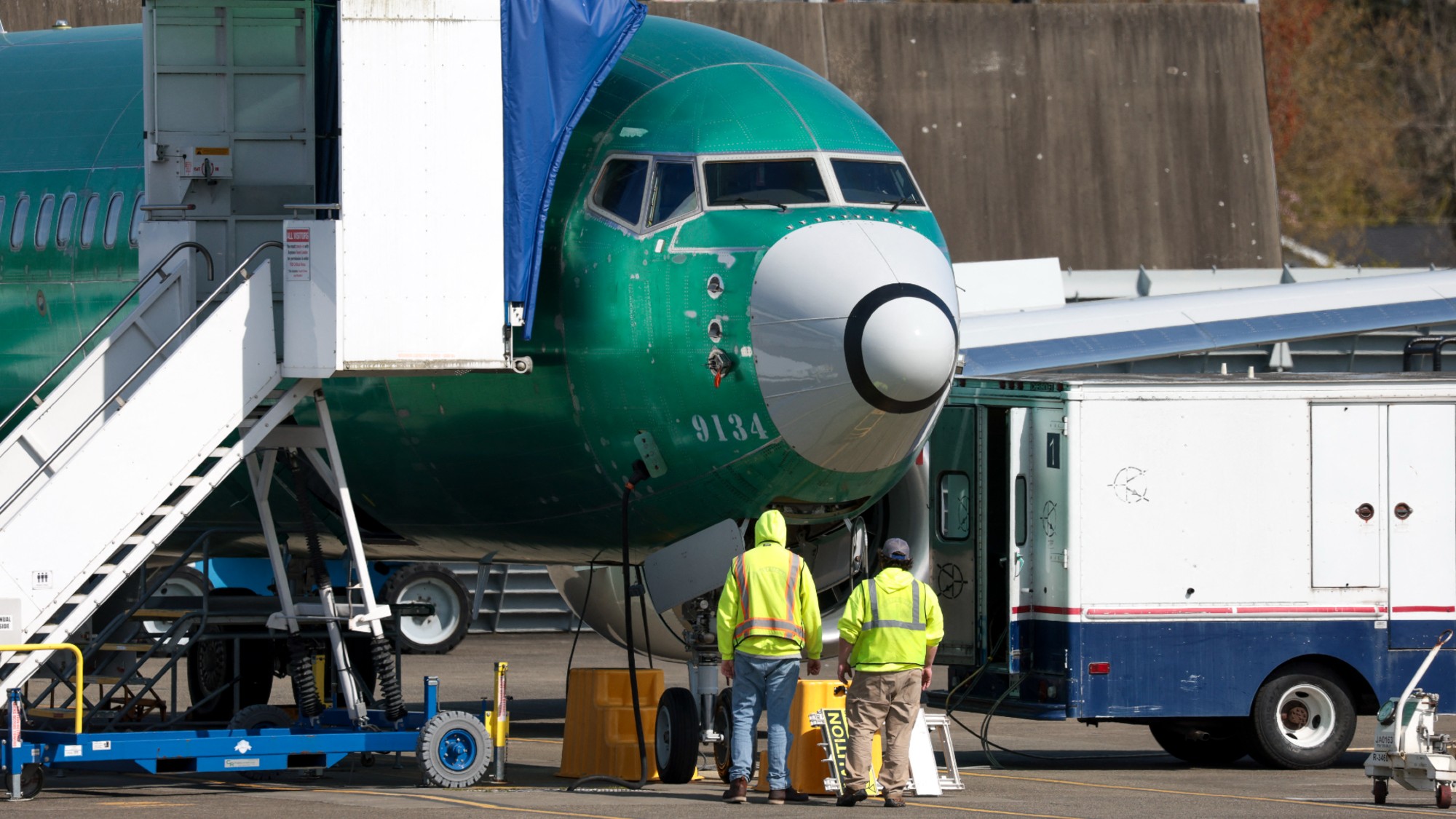Tenet killed the movies


A free daily email with the biggest news stories of the day – and the best features from TheWeek.com
You are now subscribed
Your newsletter sign-up was successful
When discussing the collapse of an ecosystem, scientists like to use an airplane metaphor. The extinction of any given species is like removing a rivet from the plane: one or two here or there makes little difference, but keep removing the rivets and before you know it, the plane is in a nosedive.
The collapse of theatrical moviegoing during the pandemic could borrow the same metaphor: the loss of a Scoob! here and an Artemis Fowl there probably didn't hurt much as studios bumped releases to next year or moved them to on-demand streaming. But Tenet was the last rivet holding the plane together, and it just caused the wing to fall off.
Billed as the movie that would save theaters, Christopher Nolan's end-of-summer puzzle box was supposed to bring American audiences flocking back to multiplexes. While about 70 percent of theaters were open in the U.S. in early September, the money-making markets of New York and Los Angeles remained closed, and Tenet made just $9.4 million in the U.S. over Labor Day weekend — a drop in the bucket of the $400-million-plus it needs to break even.
The Week
Escape your echo chamber. Get the facts behind the news, plus analysis from multiple perspectives.

Sign up for The Week's Free Newsletters
From our morning news briefing to a weekly Good News Newsletter, get the best of The Week delivered directly to your inbox.
From our morning news briefing to a weekly Good News Newsletter, get the best of The Week delivered directly to your inbox.
Worse still, Tenet's poor domestic opening gave other studios the jitters. Warner Bros.'s Wonder Woman 1984 subsequently got bumped to Christmas; Universal delayed its highly-anticipated Candyman to 2021; Marvel's Black Widow likewise fled for the greener pastures of next year. Plink, plink, plink go the rivets, with MGM's No Time to Die, rescheduled from Nov. 20 to April 2021 on Friday, being the latest to plummet earthward.
Now the fall movie release calendar is nearly empty (Pixar's Soul remains set for November at the time of writing, but The Wrap anticipates it will be delayed as well). What's more, Indiewire reported that "the average [theater] complex grossed under $5,000 (before concessions)" in mid-September, meaning theaters' operating costs were actually exceeding what they were making by being open. "If the status quo continues, 69 percent of small and midsize movie theater companies will be forced to file for bankruptcy or to close permanently," the National Association of Theatre Owners reports.
Sure enough, Cineworld — the second-largest theater operator in the world — announced Monday that it is once again suspending operations at nearly 550 Regal Cinemas locations in the U.S., and at over 100 more in the U.K. and Ireland. It might seem unfair to blame this development on Tenet alone; it's the unfortunate nature of the industry to be so vulnerable to a pandemic, and there were lots of rivets. But theatrical moviegoing is in a death spiral, and let's face it: the ground is getting real close.
A free daily email with the biggest news stories of the day – and the best features from TheWeek.com
Jeva Lange was the executive editor at TheWeek.com. She formerly served as The Week's deputy editor and culture critic. She is also a contributor to Screen Slate, and her writing has appeared in The New York Daily News, The Awl, Vice, and Gothamist, among other publications. Jeva lives in New York City. Follow her on Twitter.
-
 Tourangelle-style pork with prunes recipe
Tourangelle-style pork with prunes recipeThe Week Recommends This traditional, rustic dish is a French classic
-
 The Epstein files: glimpses of a deeply disturbing world
The Epstein files: glimpses of a deeply disturbing worldIn the Spotlight Trove of released documents paint a picture of depravity and privilege in which men hold the cards, and women are powerless or peripheral
-
 Jeff Bezos: cutting the legs off The Washington Post
Jeff Bezos: cutting the legs off The Washington PostIn the Spotlight A stalwart of American journalism is a shadow of itself after swingeing cuts by its billionaire owner
-
 Is a social media ban for teens the answer?
Is a social media ban for teens the answer?Talking Point Australia is leading the charge in banning social media for people under 16 — but there is lingering doubt as to the efficacy of such laws
-
 Why are American conservatives clashing with Pope Leo?
Why are American conservatives clashing with Pope Leo?Talking Points Comments on immigration and abortion draw backlash
-
 Questions abound over the FAA’s management of Boeing
Questions abound over the FAA’s management of BoeingTalking Points Some have called the agency’s actions underwhelming
-
 'Immigrant' Superman film raises hackles on the right
'Immigrant' Superman film raises hackles on the rightTALKING POINT Director James Gunn's comments about the iconic superhero's origins and values have rankled conservatives who embrace the Trump administration's strict anti-immigrant agenda
-
 Disney is still shielding Americans from an episode of 'Bluey'
Disney is still shielding Americans from an episode of 'Bluey'Talking Points The US culture war collides with a lucrative children's show
-
 Jony Ive's iPhone design changed the world. Can he do it again with OpenAI?
Jony Ive's iPhone design changed the world. Can he do it again with OpenAI?Talking Points Ive is joining OpenAI, hoping to create another transformative piece of personal technology. Can lightning strike twice?
-
 Is method acting falling out of fashion?
Is method acting falling out of fashion?Talking Points The divisive technique has its detractors, though it has also wrought quite a few Oscar-winning performances
-
 Wicked fails to defy gravity
Wicked fails to defy gravityTalking Point Film version of hit stage musical weighed down by 'sense of self-importance'
